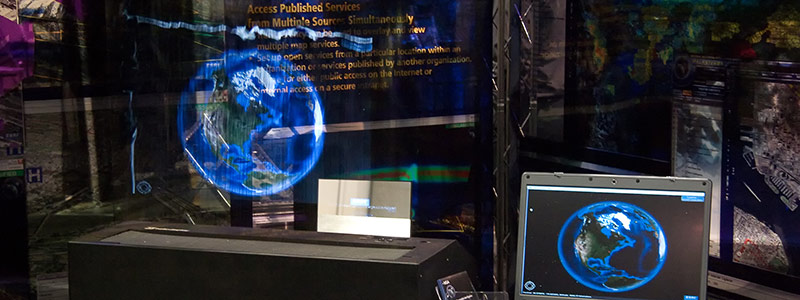
GISEC: Geographic Information Systems for Environmental Awareness and Community Engagement
Providing student with GIS Skills
The goal of GISEC is to create a pathway for students in GIS technology and to enhance technological applications of public interest with an emphasis on environmental hazards awareness and community engagement in Miami-Dade County, a minority-majority urban area significantly impacted by, and at ongoing risk for, natural disasters.
Academic pathway
As part of the grant the School of EnTec developed a 21 credit College Credit Certificate (CCC) in Geographic Information Systems. The CCC will prepare graduates in the creation, modification and analysis of GIS in order to support prediction, analysis, decision making and planning in a variety of fields and a broad spectrum of organizations, including the private sector, nonprofits, government, and academia.
This CCC is stackable to the Associate in Science in Computer information Technology. Students can then transition to a Bachelor of Science in Information Systems Technology.
This pathway is available to High School students that accomplish the requirements needed for dual enrollment.
Environmental Community Awareness
In a community such as South Florida where hurricanes occur frequently and impacts of sea level rise are being felt in beachside cities populated by hundreds of thousands of people, there is a lack of community awareness of disaster impact and approaches to mitigate.
As part of the academic program, GISEC is developing methodologies and a project learning platform for students to model and analyze the risks of environmental hazards, with a goal of raising environmental vulnerability awareness, reduce the risks of natural disasters and support resilience strategies. Environmental hazards that can be analyzed include hurricanes, flooding and sea level rise. Also risks associated to earthquakes and tsunamis can be analyzed.
Urban data
The first step required to assess the environmental risk is the access to GIS files of urban data of the zone to be analyzed: buildings, structural characteristics, streets, topography, highways, schools, hospitals, seawalls, census data and lots more. Some of this information is available in public records, but often, it needs to be reviewed, completed and updated. To solve this limitation, GISEC includes remote sensing, GPS data compilation and drone flights, photogrammetry and data processing to complete the required urban information that will support the environmental simulation.
Hurricane Flooding and more
Several methodologies are employed in order to assess the risk and give the students the opportunity to evaluate the impacts and understand the need to take actions to reduce the risks of disasters. The impacts of past hurricanes can be evaluated following FEMA’s methodologies; estimations of impact of potential hurricanes can be assessed. Students will be able to model and also to be active agents in prevention and adaptation in their communities. The economic impact of hurricanes and other hazards is also included in the analysis.
Adaptation and Resilient Urban Planning:
GISEC includes the analysis of the potential environmental impacts in local communities and conceives adaptation plans generated together with them, and guided by highly skilled environmental planners. This activity will not only raise community awareness, it will also enhance the importance of emergency preparedness, will generate concern among the community, will encourage them to take action, and will promote governmental resilience strategies as RESILIENT-305
Technology and Public Interest
GISEC will advance the field of public interest technology through the development of a modeling platform for project learning, with real data capture, will show students (future members of the GIS workforce) the importance of collaboration and public responsibility to reduce vulnerability, build resilience, and reduce the risk and impact of natural disasters. The use of IT in the assessment of environmental risks in vulnerable areas, raising awareness of the political, ethical and societal urgency that climate change, natural disasters risk reduction and resilience building require, especially in vulnerable urban communities of Miami, is something that can be disseminated to citizens of communities – particularly those most at-risk.
GISEC is a Project Supported by a Grant from the Public Interest University Network
Team
- Dr. Carlos Genatios (PI)
- Prof. Ana Guzman
- Prof. Norge Perez Pena

